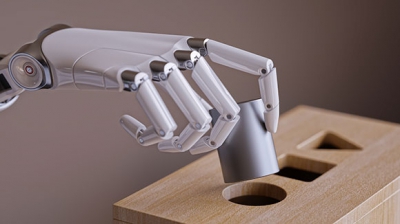Progress in AI has been impressive. It does still have its limits, but it is already possible to use it for product information solutions, reference data or in digital property management systems.
#AI can do anything

With this progress, we are made to believe that artificial intelligence is already capable of anything, such as programming instead of humans, composing music or creating works of art. Literature and science-fiction films are making us believe that machines are preparing an uprising. Skynet will take over. Mankind is in danger as it is losing control over machines which are superior to us.
#
Artificial intelligence doesn't think
However, artificial intelligence doesn't think, or at least not the AI that exists today. AI is simply a system of highly advanced algorithms which are defined and controlled by man. Artificial intelligence can use gigantic quantities of data (big data) to extract statistics and complex mathematical formulas which enable it to recognize and reproduce. And that is where it's different to human beings. AI is not yet capable of recognizing and reproducing by itself. And such autonomy is not on the cards for the near future.
Recent progress in the fields of machine learning and deep learning are based on “learning” by the machine. This learning requires huge quantities of data and numerous repetitions in order to function correctly. Google's DeepMind beating professional Starcraft players is a great example: it took the equivalent of nearly 200 years of practice to achieve this level in the game. A huge amount of time, which shows, luckily enough, that humans learn more quickly. And that they are capable of capitalizing on their experience to use it on new topics (to learn a new video game) while artificial intelligence remains specialized on a highly specified pre-defined task. #
PIM / MDM / DAM and Artificial intelligence
Today's solutions for product information management (GIP or PIM), reference data (MDM) and digital property management systems (DAM) allow us to centralize large volumes of data (technical characteristics, logistics, marketing, rates…). The aim is to improve the quality of information and to publish it efficiently on different channels.
The use of artificial intelligence in these solutions promises to solve all the problems occurring during the implementation of these software tools. These systems allow us to organize information with a great level of detail with the help of large volumes of metadata. The quality of information comes, first and foremost, from what is provided by all users: incorrect prices, inconsistent image, duplicate fact sheets or incomplete properties… all of these problems arise from incorrect input of information.
With AI, we could have an intelligent system, capable of revising all this information and identifying what is wrong, correcting errors and better still, inputting data.
- If the quality of data is uncertain or fluctuating, the learning process will be too and it will not produce good results,
- If the quantity of data is insufficient, the learning process will not be a success,
- If all the elements to be processed are too heterogeneous, no “statistical trend” can be identified correctly.
- Preparing long descriptions based on different characteristics or automatically associating images with the correct products based on their metadata: this is already possible with “traditional” algorithms. What AI can do on top of this is, from among thousands of product fact sheets, analyze how human beings prepared them to understand the rules to apply. It's not that useful as the users are generally capable of formulating these rules directly.
- Writing appropriate marketing texts or choosing the best image for presenting a product: these actions are subjective and require intuition. You need “situational intelligence”. The existing artificial intelligence is not capable of this.
It's already possible to use the developments in AI in the fields of PIM / MDM / DAM. There are still limits, but they are being stretched a bit more every day.








